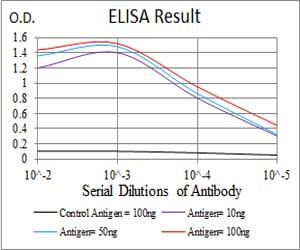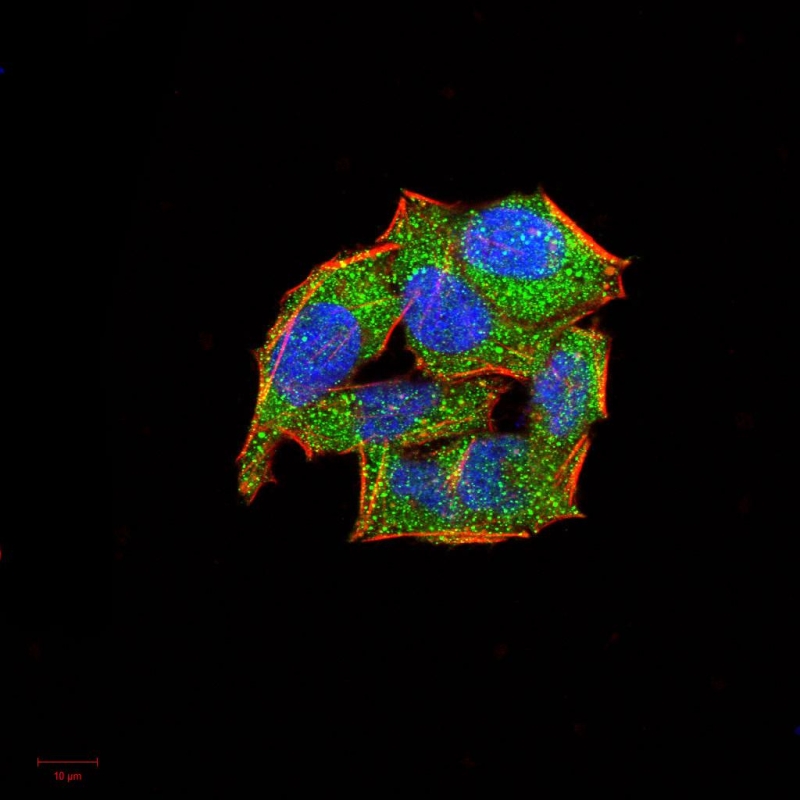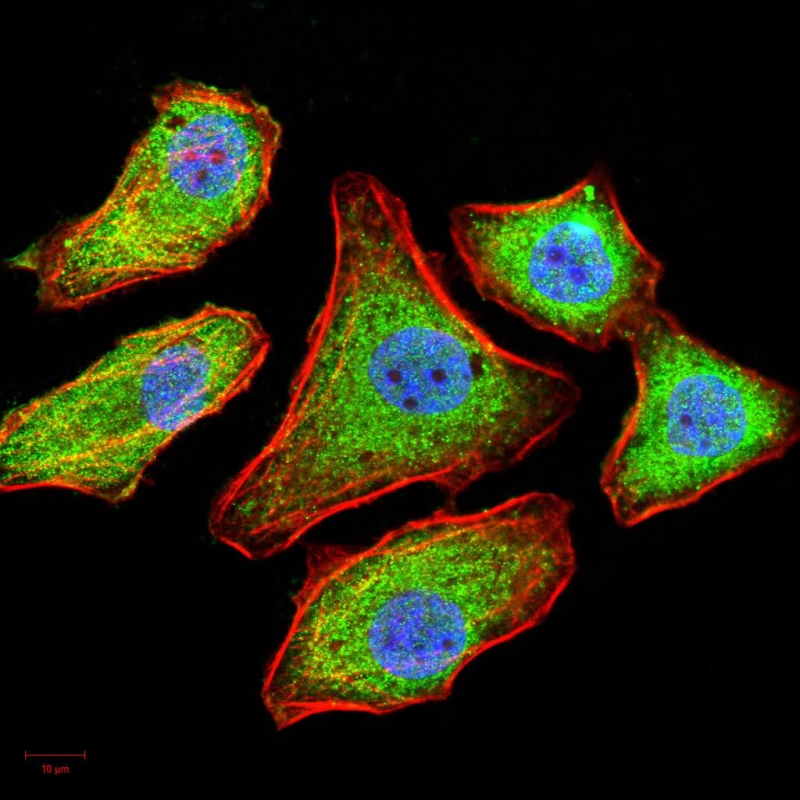


| WB | 咨询技术 | Human,Mouse,Rat |
| IF | 咨询技术 | Human,Mouse,Rat |
| IHC | 咨询技术 | Human,Mouse,Rat |
| ICC | 1/200 - 1/1000 | Human,Mouse,Rat |
| FCM | 咨询技术 | Human,Mouse,Rat |
| Elisa | 1/10000 | Human,Mouse,Rat |
| Aliases | TQ1; LAM1; LEU8; LNHR; LSEL; CD62L; LYAM1; PLNHR; LECAM1 |
| Entrez GeneID | 6402 |
| clone | 8C8B7 |
| WB Predicted band size | 42.2kDa |
| Host/Isotype | Mouse IgG1 |
| Antibody Type | Primary antibody |
| Storage | Store at 4°C short term. Aliquot and store at -20°C long term. Avoid freeze/thaw cycles. |
| Species Reactivity | Human |
| Immunogen | Purified recombinant fragment of human SELL (AA: 83-186) expressed in E. Coli. |
| Formulation | Purified antibody in PBS with 0.05% sodium azide |
+ +
以下是关于SELL(L-选择素,CD62L)抗体的3篇假设性文献示例,供参考:
---
1. **文献名称**:*Targeting L-selectin (SELL) for Attenuation of T Cell-Mediated Autoimmunity*
**作者**:Smith A, et al.
**摘要**:本研究探讨了抗SELL单克隆抗体在抑制自身免疫性疾病中T细胞迁移的作用。通过阻断CD62L与内皮细胞的相互作用,显著减少效应T细胞向炎症组织的浸润,并在小鼠类风湿性关节炎模型中观察到症状缓解,提示其治疗潜力。
---
2. **文献名称**:*CD62L Antibody Modulates Neutrophil Recruitment in Acute Inflammation*
**作者**:Li X, et al.
**摘要**:研究利用抗SELL抗体干预急性肺炎模型,发现抗体处理可减少中性粒细胞向肺组织的迁移,降低局部炎症因子水平,表明靶向L-选择素可能为炎症性疾病提供新策略。
---
3. **文献名称**:*L-selectin as a Biomarker for CAR-T Cell Persistence in Cancer Therapy*
**作者**:Brown K, et al.
**摘要**:该文献分析了CD62L表达与CAR-T细胞体内存活的关系,发现高表达SELL的T细胞具有更强的淋巴结归巢能力。使用SELL抗体阻断实验进一步验证了其对CAR-T疗效的影响,为优化免疫治疗方案提供依据。
---
**注意**:以上文献为示例,非真实存在。建议通过PubMed、Web of Science等平台检索真实文献,关键词可包括**"L-selectin antibody"**、**"CD62L blockade"**或**"SELL immune function"**。
SELL (L-selectin), encoded by the *SELL* gene, is a cell adhesion molecule belonging to the selectin family. It is primarily expressed on leukocytes, including lymphocytes, neutrophils, and monocytes, where it mediates transient interactions with endothelial cells during immune surveillance and inflammation. SELL facilitates leukocyte rolling along vascular walls by binding to carbohydrate ligands like CD34 and GlyCAM-1 on high endothelial venules, enabling lymphocyte homing to secondary lymphoid organs and recruitment to inflamed tissues.
SELL antibodies are critical tools in immunology research, targeting specific epitopes to study leukocyte trafficking, immune responses, and inflammatory diseases. For example, anti-SELL antibodies can block lymphocyte migration to lymph nodes, elucidating mechanisms in adaptive immunity. They are also used in flow cytometry to identify cell subsets (e.g., naïve vs. memory T cells) based on SELL expression levels. In preclinical studies, SELL inhibition has been explored to modulate pathologies like autoimmune disorders or ischemia-reperfusion injury.
Notable clones include CD62L antibodies (e.g., DREG-56. MEL-14), validated for functional assays and diagnostic applications. Despite therapeutic potential, challenges remain in balancing SELL's dual roles in protective immunity and pathogenic inflammation. Research continues to refine targeting strategies, including glycomimetic drugs or engineered antibodies, to harness SELL's functions for clinical benefit.
×